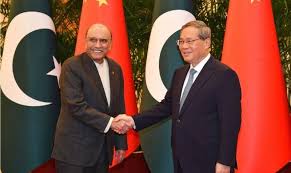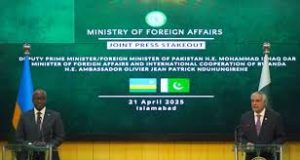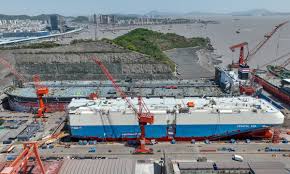At UN, Pakistan urges technology transfer & finance to help developing countries attain ‘Zero Waste’

United Nations: Pakistan has called for enhanced global partnership focused on capacity building, technology transfer and finance to enable developing countries achieve ‘Zero Waste’.
“There is a dire need worldwide to move towards ‘Zero Waste’,” Ambassador Aamir Khan, deputy permanent representative of Pakistan, said in a statement he read out on behalf of Federal Minister of Climate Change Sherry Rehman at a high-level meeting in the UN General Assembly Hall marking the first-ever International Day of Zero Waste.
The meeting was held to raise awareness of the urgent need to transition to a “green” and circular economy that promotes sustainable production and consumption patterns. The move could save governments billions and create hundreds of thousands of jobs.
At the outset, Ambassador Khan, speaking on behalf of the Minister for Climate Change, thanked Turkiye for its initiative on ‘Zero Waste’ and in particular, commended Emine Erdogan, wife of the Turkiye President, for her leadership on this issue.
“Rising waste is a global issue,” he said, as societies have become increasingly consumption driven, excessive consumerism, along with a growing population, causes billions of tons of waste to be produced every year.
Pointing out that different types of wasted are generated like municipal solid waste, hazardous waste, medical waste, Ambassador Khan said their effects vary widely. For example, hazardous waste, by definition, had the potential to negatively affect human health and the environment. Municipal solid waste landfills result in methane emissions and could contribute to global climate change.
“The concept of zero waste is embedded in Pakistan’s culture and in our religion, Islam,” he told delegates.
“Yet,”, he added, “like many other developing countries, Pakistan suffers many difficulties due to a lack of adequate waste management infrastructure.”
Pakistan’s surface and groundwater resources were already under threat from climate change and the problem of inadequate waste management merely exacerbates this, it was pointed out. That was now under regulation to prevent dumping, under the National Hazardous Waste Management Policy 2022.
Thirty million tonnes of municipal solid waste was generated in Pakistan each year, 10 to 14 per cent of which was hazardous waste, including e-waste, hospital waste and pesticides. Pakistan also receives an average annual tonnage of 80,000 in hazardous waste from different parts of the world.
“The new policy promotes a life cycle approach to manage hazardous waste from its generation to disposal in a manner that does not harm the environment,” the Pakistani envoy said, adding that it would result in strengthening of classification, transparency, institutional frameworks, a national action plan, and governance infrastructure for the regulation of hazardous waste in Pakistan and its international border.
“It is essential to adopt zero-waste initiatives and zero-waste lifestyles at local, regional, and national levels, in both households and governments”, he added. “Yet, for many developing countries, moving towards such an approach will require enhanced global partnerships focused on capacity building, technology transfer, and finance.”





